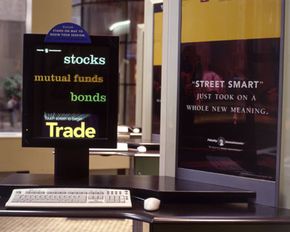If there were a Hot 100 chart for investments, mutual funds would be in the top 10. Mutual funds are one of the most popular investment options for individual investors, and with good reason -- they help you increase your buying power and reduce your exposure to risk.
Advertisement
In a mutual fund, an investment company gathers money from many individual investors and uses this pool of funds to purchase a wide variety of financial assets. It works a lot like your neighborhood stock club, but with more clout and more regulations. The investors own a share of the entire fund based on the amount of their investment.
It is estimated that more than eight out of 10 investors in the United States own shares in mutual funds. Why are mutual funds so popular? They have several advantages:
- Diversification: Your money and your risk are spread across many different asset classes.
- Professional management: Your investment benefits from the knowledge and experience of a professional fund manager, whose compensation depends on the fund's performance.
- Affordability: You don't need large amounts of money to invest, and the costs of buying and selling assets are low because you share them with other fund investors.
- Liquidity: It's easy to convert shares into cash.
Sounds good, doesn't it? Now, what if you took all that and made it tax-free? You wouldn't just have a top-10 hit -- you'd have a blockbuster smash, the sort of instant classic that can define an entire summer. Right?
Well ... maybe. Tax-free mutual funds have many of the same advantages as their taxable cousins. But they also have a few drawbacks, including lower earnings, proportionally higher fees and -- despite the name -- some tax liabilities. Read on to learn what goes into a tax-free mutual fund and if investing in one will help your portfolio go platinum.
Advertisement



